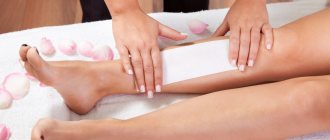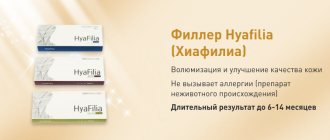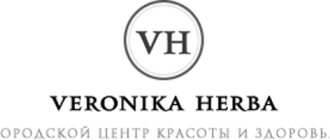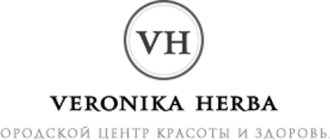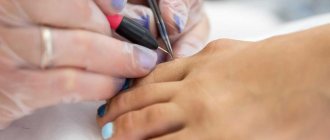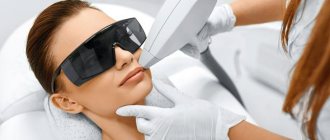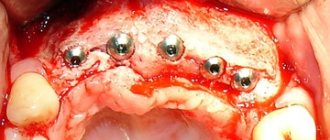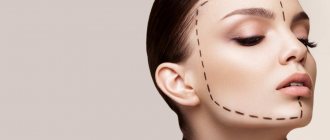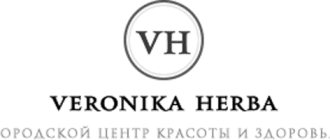Sugaring is a procedure of purely aesthetic nature. There are no medical indications for its implementation, and a woman only seeks to increase her attractiveness with smooth, even skin. Sugaring occupies a special place among hair removal methods, since the procedure is characterized as the least expensive and easy to perform. Its important property is safety. However, there are contraindications for its implementation. Of course, various kinds of restrictions apply during pregnancy.
Is it possible to do sugaring in the early stages of pregnancy?
Reviews from women who have repeatedly undergone sugaring indicate that it is somewhat painful. This is understandable, given the nature of hair removal. Sensations in the bikini area, which is characterized by good blood supply and innervation, can be especially unpleasant.
When turning to the sugaring procedure in the early stages of pregnancy, you should take into account all the factors that may aggravate the procedure. Despite the fact that pregnancy is a physiological process, this period is characterized by hormonal changes. The unstable psychophysical state of a woman helps to lower the pain threshold. In such conditions, the sensations during sugaring will be even less pleasant, and it is undesirable to carry out it. The procedure can be especially dangerous if it is a large area, such as the legs, or an area of increased sensitivity. A more loyal attitude towards the possibility of carrying out the procedure in the event that it is necessary to remove hair in a small area, such as the area of the upper lip.
What should you pay attention to?
It is very important to choose a salon with a good reputation. Find out from your friends if they are interested in this procedure, read reviews, talk to administrators. During pregnancy, you should not harm yourself, so make sure that the specialist will carry out the procedure efficiently and take into account all the nuances of your situation.
It would be useful to see the specialist before the procedure itself: it is possible that the person will not be attractive and arouse sympathy. In this case, it is better to refuse sugaring in its implementation. A sensitive master, whom you are disposed to and trust, will help make the procedure more comfortable and less painful.
Sugaring in late pregnancy
Additional stress for the body in late pregnancy is extremely undesirable; this period is not the best time to carry out the sugaring procedure. Any negative factors, strong emotions, pain can lead to increased blood pressure and the development of uterine hypertonicity. As a result, the threat of premature labor cannot be ruled out. It is very dangerous if the situation develops in this way during the 8th month of pregnancy. Salon masters, understanding their responsibility, do not perform sugaring in late stages of pregnancy; they try to convince the woman to postpone the procedure by contacting her after childbirth.
How to properly perform sugaring for pregnant women? Note to the master
The master has the right to refuse a pregnant woman if she has never done sugaring before this moment or hair removal in general (procedures for removing hair from the root). The first time is always the most painful, and pregnancy is definitely not the best time for it.
If a woman has already gone through such procedures and knows what sensations she will have, then sugaring for pregnant women is not contraindicated. It is only important to be careful when working with the bikini area, especially in the first trimester and from the middle of the third. Involuntary contractions of the uterus and a rush of blood can theoretically trigger premature labor.
Features of sugaring different areas during pregnancy
The most optimal time for sugaring during pregnancy is the second trimester. However, when considering carrying out the procedure even during this period, you should carefully study all the accompanying circumstances. The main factor that affects the possibility of sugaring during pregnancy is discomfort. The larger the surface area being treated, the longer the woman will experience pain.
Depilation of any area of the face will take a few seconds. Moreover, you should not worry about the progress of the procedure if the woman has performed it several times before and the skin is accustomed to such effects. For large areas, the attitude is somewhat different, since hair removal on the legs or arms will take longer. An individual approach when deciding on the possibility of sugaring during pregnancy is a priority. The situation will be weighed especially carefully if it is necessary to carry out the procedure in the bikini area or intimate area.
What hair removal methods are prohibited for pregnant women?
In addition to laser hair removal, there are many other ways to combat unwanted hair. For example, electrolysis. It is the destruction of hair follicles under the influence of electric current. To get a good result in the shortest possible time, cosmetologists additionally use high temperature and alkaline compounds. Such measures allow you to forget about hairs for a long time.
The disadvantage of electrolysis is discomfort and pain. This is why pregnant women should not use this method of dealing with excess hair. Even clients who are not expecting a baby are not always able to endure a session of such a procedure.
The second popular type of getting rid of unwanted hair is photoepilation. The specialist removes hair with high-pulse light. Women confirm the effectiveness of this method. However, it is strictly prohibited for pregnant women due to the lack of data on the effect of flash on the fetus. It is better to postpone the procedure until the baby is born.
The essence of bioepilation is to remove hair using wax, phytoresin or sugar caramel. In the first and third trimester, this procedure is strictly prohibited for pregnant women. Bioepilation is very painful and can cause uterine hypertonicity and miscarriage. The procedure can be performed in the second trimester of pregnancy, when sensitivity decreases slightly.
Bioepilation can be performed on the arms, legs, armpits and face. This method cannot be used to remove hair on the stomach and bikini area. It is better to refuse bioepilation for varicose veins.
Restrictions on the procedure
If a woman first turns to sugaring during pregnancy, with a high degree of probability, the specialist will recommend that she postpone the procedure. The requirements for a woman who has repeatedly undergone sugaring before are less stringent. However, even in this case, the master will undertake the procedure only if there are no restrictions. Contraindications for sugaring during pregnancy are:
- a history of cases of premature termination of pregnancy;
- pathological course of the current pregnancy;
- toxicosis;
- low pain threshold;
- arterial hypertension;
- microtraumas at the site of intended impact;
- chronic diseases in the acute stage, as well as acute processes accompanied by malaise and increased body temperature.
At the same time, experts have developed the following tactics: if a pregnant woman’s condition worsens during sugaring, the procedure should be stopped.
Who is contraindicated for the procedure of deep cleansing of the bikini area?
The most sensitive area for sugaring is the bikini.
This area requires special care, since the accumulation of bacteria is extremely undesirable, especially during pregnancy.
It is strictly forbidden to do total sugaring of the bikini area in the following cases:
- varicose veins affecting the labia;
- uterine tone;
- discomfort in the lower abdomen;
- toxicosis, when the body already has a high load;
- threat of miscarriage.
The procedure for deep cleansing a bikini is painful even for women who do sugaring regularly.
Before contacting a specialist, you should assess your condition and consult a gynecologist to avoid unpleasant consequences.
Precautions and general recommendations
In order to carry out hair removal in a pregnant woman as safely as possible, experts recommend adhering to several rules:
- the length of the hair should be at least 5 mm, which will ensure maximum contact with the paste and facilitate the removal process;
- the procedure is excluded in case of fresh tanning in the area of future hair removal;
- After completing the procedure, it is necessary to treat the affected area with a gel with a soothing and anti-inflammatory effect.
To ensure the safety of the entire procedure, an individual approach is important. The specialist must take into account the woman’s experience in removing excess hair, the techniques she used previously, and her feelings during the procedures. The specialist will be required to competently assess all the risks associated with her current condition. In some cases, he will tactfully recommend refraining from carrying out the procedure.
Skin care after a laser hair removal session
In addition to preparing for the procedure, it is necessary to complete it correctly. In specialized clinics, after laser hair removal, clients are given a cold compress. This care procedure reduces the likelihood of swelling and erythema. If damage cannot be avoided, you need to purchase antibacterial ointment. It should be applied to the damaged area of the skin until complete healing.
Pregnant women suffer from dry skin. After laser hair removal, the moisture in the epidermis becomes even less; it simply needs good hydration. Experts recommend using a cream with despanthenol. This substance has an excellent regenerating effect. Nourishing creams with natural oils will also help prevent dryness and flaking of the skin. Give preference to products rich in vitamin E. They may contain avocado oil, wheat germ oil, peach oil and others.
After laser hair removal, experts recommend allowing the body to rest and recover. In order for the irritation and redness on the skin to subside, you will need to give up cosmetics for some time. Pregnant women should save decorative cosmetics, aromatic soaps with an alkaline acidity, and self-tanning until better times. Until the skin is completely regenerated, you should not visit the pool or sauna, or soak in a hot bath.
Is it possible to do sugaring during pregnancy: pros and cons
Any obstetrician-gynecologist will confirm that the presence of hair in the bikini area and intimate area during childbirth is undesirable. However, it will be difficult to independently shave them immediately before childbirth. In addition, in this case, the development of inflammatory processes or even pustular lesions cannot be ruled out. Embarrassment often prevents you from trusting health workers.
It should be taken into account that of all existing methods of hair removal, sugaring is the safest and most painless, and therefore preferable during pregnancy. Laser hair removal or waxing during this period is generally excluded.
If you choose the right time for sugaring, the second trimester, then in the absence of contraindications at the time of the procedure, hair removal can be successfully carried out in any area. In this period, there are significantly more “pro” factors than when performing the procedure in the early stages or 7-8 months of pregnancy.
Consequences of laser hair removal for mothers
No one knows exactly how laser hair removal affects the fetus. But there is information about the effect of the procedure on pregnant women.
By removing hair with a laser, you can provoke:
- Unexpected result. The hormonal background of pregnant women changes, which can affect the desired result. Excess vegetation will remain, the hairs will become thicker and thicker.
- Burn. Hormonal changes can trigger excess melanin production. In this case, laser hair removal is fraught with changes in skin tone and burning.
- Swelling, swelling of the skin. Incorrectly selected “dose” of radiation, excessive duration of laser action on the patient’s skin, repeated treatment of the same areas are the causes of bloating or swelling.
- Pigmentation. There is a possibility of hyper- or hypopigmentation.
- Severe dryness. Pregnant women often complain of dry skin. Laser hair removal increases skin dehydration. Intense loss of moisture contributes to the development of stretch marks.
- Scabs. If you violate the rules for laser hair removal, you can damage your skin with the laser. This is especially true for dark skinned people.
- Rash. Laser hair removal can cause clogging of the sebaceous glands, which leads to redness and rashes.
Reviews
According to doctors, sugaring, when carried out correctly, taking into account the duration of pregnancy and the woman’s condition, is a safe procedure. In addition, by removing hair immediately before giving birth, a woman will no longer need additional shaving in the hospital. Positive reviews from gynecologists are also based on the fact that with an individual approach, the desired effect can be obtained quite safely. Doctors only warn that if symptoms such as nagging pain in the lower back or tension in the groin appear, the procedure should be stopped.
The high level of qualifications of the masters and extensive experience make the SUGARME beauty salon the preferred place for any type of bioepilation. Here you can clarify the possibility of carrying out the procedure on a pregnant woman in each specific case.
How to prepare for an abdominal ultrasound: can you eat and drink water before the examination?
Ultrasound of the abdominal cavity is an informative diagnostic method, thanks to which you can quickly and accurately (90% of cases, if additional examination is not required) determine the pathology, as well as make a diagnosis.
Unfortunately, I am increasingly faced with ignorance from patients who think that preparing for an abdominal ultrasound includes only 1 point - coming for the examination on an empty stomach.
Of course, this is not all, so I’ll tell you further about how to prepare for an abdominal ultrasound, and whether you can eat and drink water before the study.
IMPORTANT! The reliability of the results depends on how high-quality the preparation was.
What organs are checked during the examination?
At our Lesante Center, abdominal examination includes the following organs: liver and gallbladder, pancreas, spleen, retroperitoneum and blood vessels.
If you have at least one of these symptoms, it's time to schedule an ultrasound:
- pain in the abdominal area;
- nagging pain after eating;
- bitterness in the mouth (usually after sleep);
- elevated temperature without good reason;
- pain in the lumbar region;
- suspicion of cancer, etc.
IMPORTANT! There are no absolute contraindications for this diagnostic method. Ultrasound is a painless and safe method for examination.
Preparing for an abdominal ultrasound
- 4 basic rules:
3 days before the ultrasound, it is important to exclude fatty and gas-forming foods from the diet (I talk a little more about it below);
do not drink water or eat food for 8 hours;
take only those medications that your doctor has approved;
On the day of the study you should not smoke or chew gum.
- What can and cannot be eaten before the examination?
| DO (foods that promote normal digestion) | DON'T (foods that produce gas) |
| chicken breast | any dairy products |
| beef | cabbage, radish and radish |
| turkey | legumes |
| River fish | pasta and flour products |
| stewed or steamed vegetables | various grains, except rice |
| boiled eggs and potatoes | alcohol, carbonated drinks |
| soups | fresh apples, pears and grapes |
IMPORTANT! The correct drinking regimen is 1.5 liters of water per day, not counting other drinks. It must also be observed before an abdominal ultrasound.
Additional recommendations
In Lesante we perform entire complexes of abdominal ultrasound. One of them includes examination of the abdominal organs and kidneys (liver and gallbladder without determining function, pancreas, spleen, kidneys and adrenal glands) with duplex scanning of blood vessels.
So, if you are planning to make an appointment for an ultrasound of the liver and gallbladder, remember that you can still drink a little water (provided that the appointment is scheduled for the morning). But coffee, tea, and mineral water are prohibited. The second half of the day requires a 5-hour break between eating and examination. There are also certain restrictions here, for example, you cannot eat foods that cause gas formation. These include legumes, any dairy products, raw vegetables and fruits.
Here are a few more tips to help you thoroughly prepare for your ultrasound:
- if you have an appointment tomorrow, you must eat no later than 19:00;
- if you suffer from chronic constipation, it is important to do an enema or take a laxative first;
- quit smoking literally for 1 day: nicotine narrows not only blood vessels, but also bile ducts, which will not allow the doctor to make an accurate diagnosis;
- Chewing gum should also not be used, since chewing produces a lot of saliva. It neutralizes bile, which as a result makes it impossible to fully examine the organs;
- if you have diabetes, we recommend making an appointment only for the first half of the day, after drinking some water (diabetics are also allowed to eat light food);
- Be sure to tell your doctor that you are taking certain medications on an ongoing basis.
IMPORTANT! Never prescribe any medications to yourself without consulting your doctor. Do not try traditional methods on yourself that supposedly help you prepare for the examination. This can lead to dire consequences.
Call and make an appointment for an abdominal ultrasound, including a comprehensive one, at the Lesante Medical Aesthetics Center by phone:
+375 (17) 399-43-09, +375 (29) 699-43-01, +375 (29) 529-43-01.
You can view prices here.
Is it possible or not to go for sugaring of intimate areas and other places on the body before giving birth?
At 9 months, the expectant mother again needs to be careful so that the procedure does not cause labor. However, this applies to the deep bikini area. In other cases, you can go for hair removal. But you need to listen to your body and interrupt the work of the master if any unpleasant symptoms occur.
How many days before giving birth can you wax?
Today, a shaved intimate area is not just a woman’s whim. Medicine itself puts forward such rules. If you do not take care of this in advance, then obstetricians will carry out the treatment in the maternity hospital. Therefore, before giving birth, it is wise to do hair removal, the effect of which will last for several weeks in advance. When the pregnancy is full-term and only a few days remain until the birth itself, you can safely carry out the procedure. However, you should tell your gynecologist about this and listen to his recommendations. It should also be taken into account that it is highly undesirable to carry out hair removal procedures 1-2 days before the expected date.
What to do with ingrown hairs
The number of ways to independently combat ingrown hairs during pregnancy is very limited. A week after sugaring, it is recommended to use a sugar scrub with almond oil on large areas (arms and legs) and moisturize the skin daily with Vitality SPA body cream.
Carrying a child is a delicate and important period in a woman’s life, but it is not at all necessary to endure the presence of unwanted hair for all 9 months. To maintain smoothness and comfort, you just need to find a good sugarist and visit him a couple of times before pregnancy.
The essence of sugaring
Before answering the question whether it is dangerous for expectant mothers to remove hair with caramel, you need to understand what this method is, what advantages and disadvantages it has.
Sugaring is the removal of unwanted hair from the surface of the body using a sweet mass. Sugar paste is applied to the skin against the growth of hairs, the hairs stick to it, and then the paste is sharply torn off along the growth. The hairs “leave” the skin along with the roots.
Sugar paste should be applied against hair growth and pulled off along the growth direction.
The procedure has a number of advantages:
- the technique of applying and removing the sticky mass during sugaring significantly reduces pain, since hair is pulled out in the direction of its growth;
- The caramel contains natural ingredients (sugar, water, lemon juice), so the likelihood of allergic reactions is minimized;
- hairs sprout in 2–4 weeks, so depilation can be done infrequently;
- Sugar paste does not require heating to high temperatures, therefore, there is also no risk of burns.
Among the disadvantages of sugaring, the following points can be noted:
- if the procedure is done for the first time, painful sensations may appear, especially in areas where the skin is sensitive (bikini, armpits, face);
- Removing hairs along with the root is often accompanied by the appearance of microtraumas on the skin, through which infection can penetrate and cause inflammatory processes.
